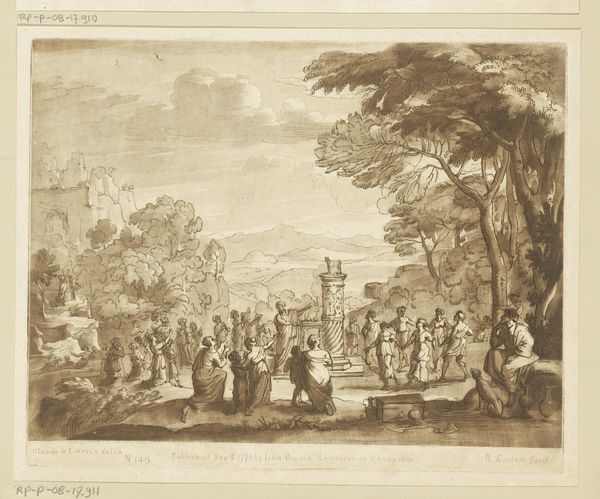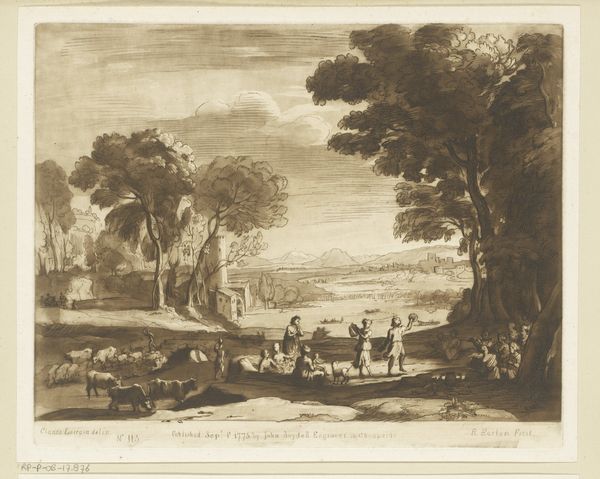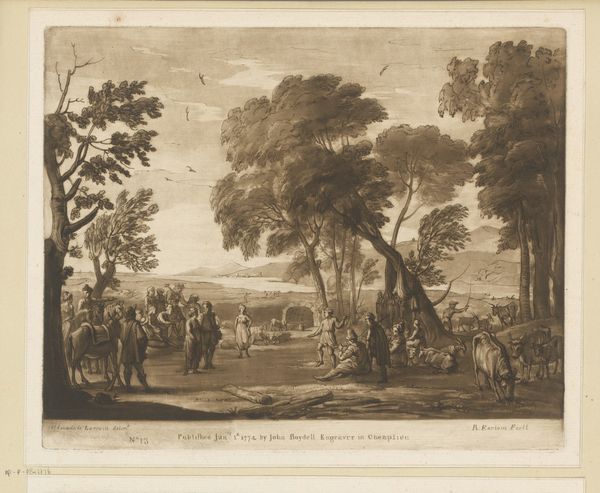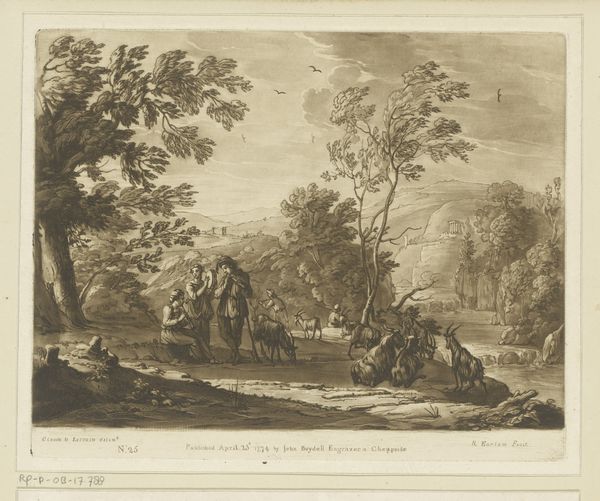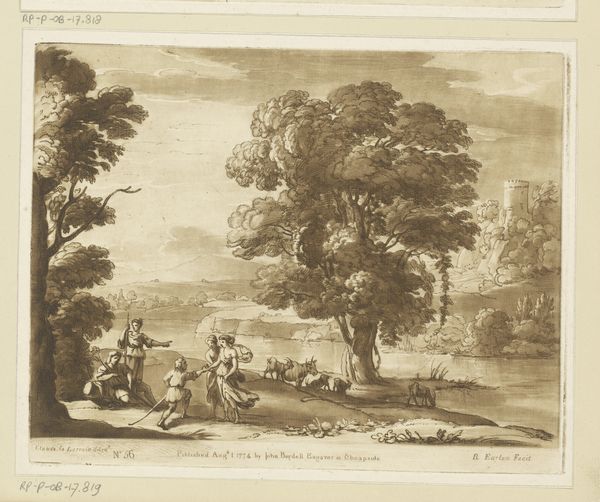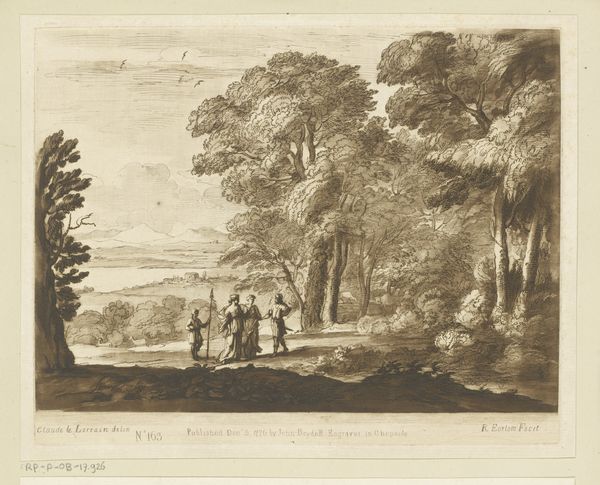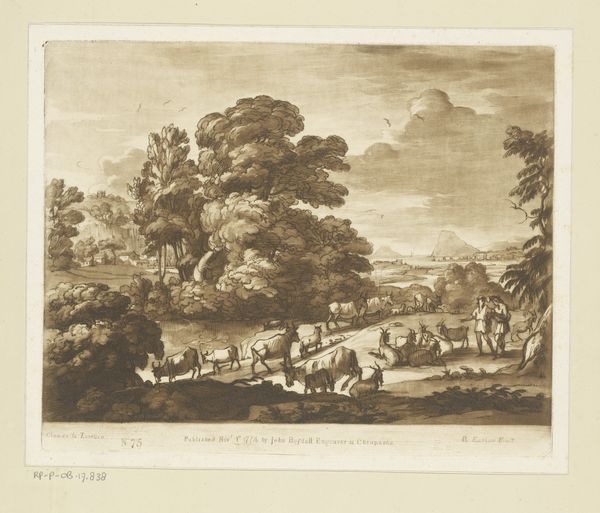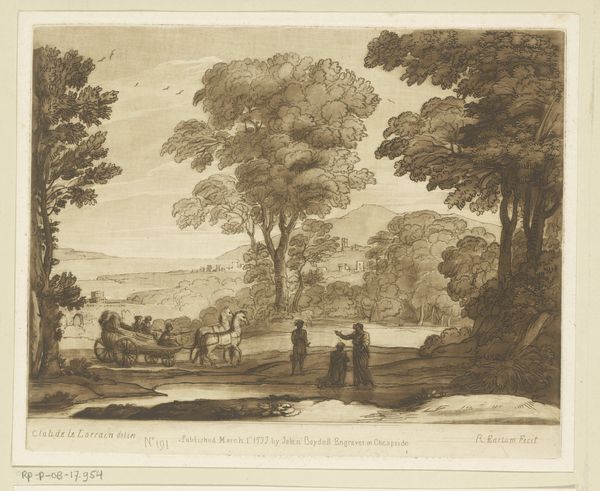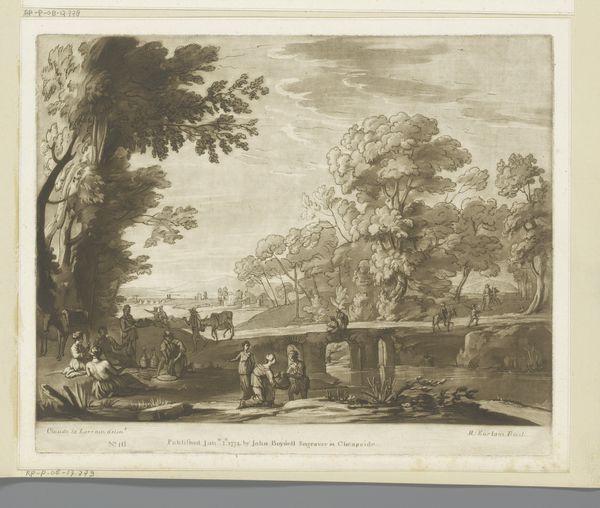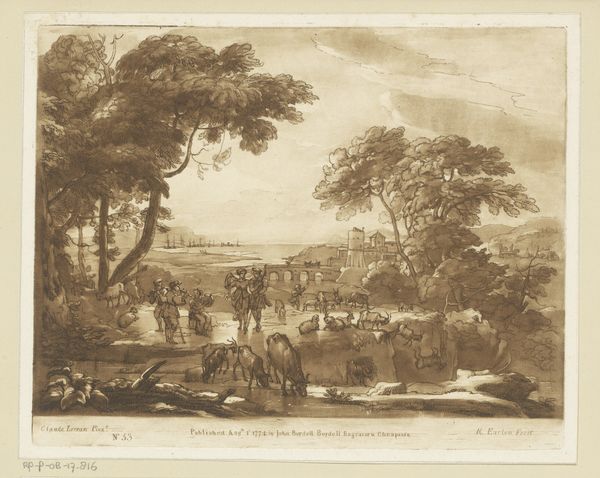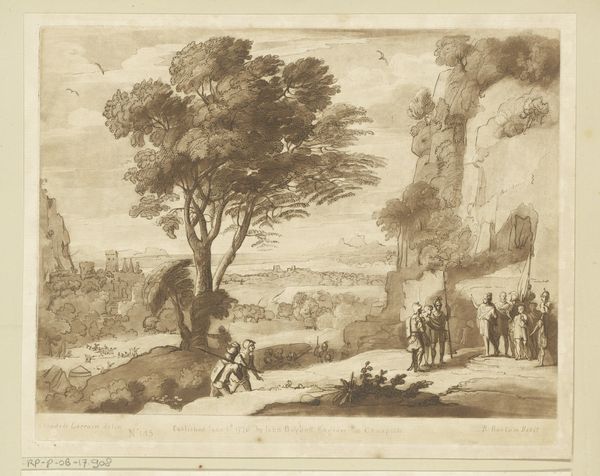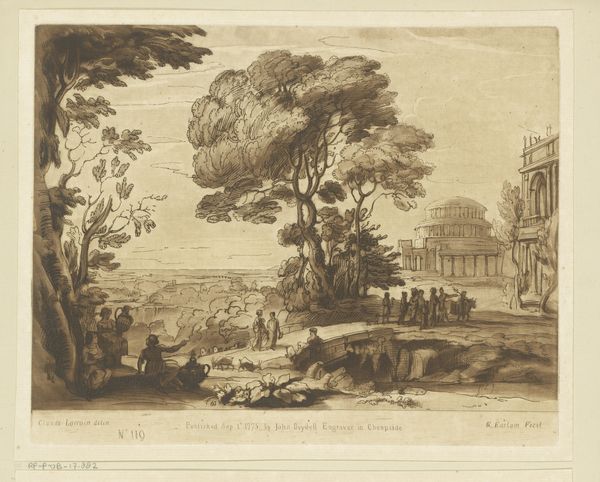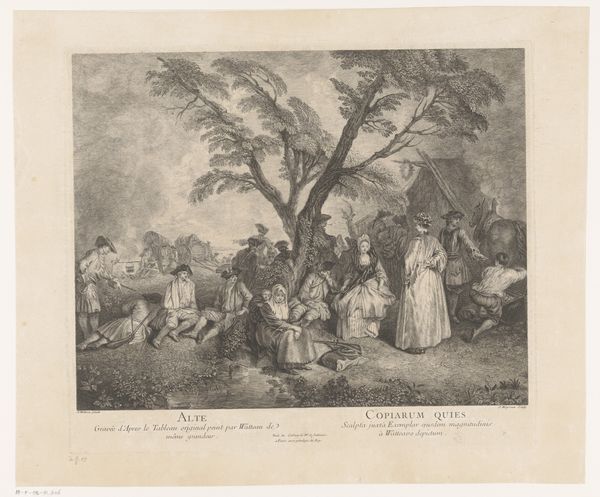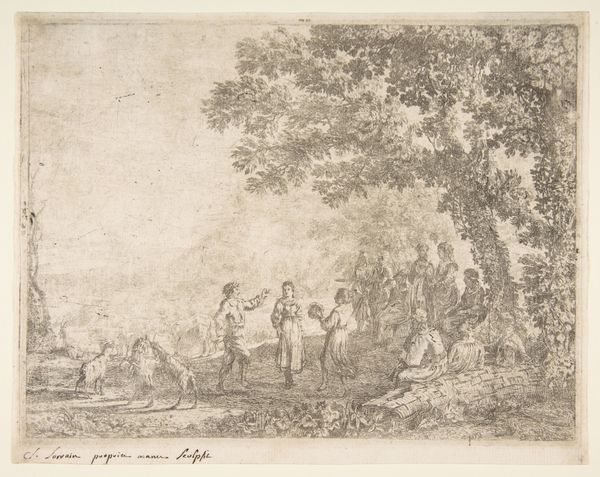
drawing, print, engraving
#
drawing
# print
#
landscape
#
charcoal drawing
#
history-painting
#
engraving
#
watercolor
Dimensions: height 208 mm, width 258 mm
Copyright: Rijks Museum: Open Domain
Editor: So, here we have Richard Earlom’s "Landscape with the Adoration of the Golden Calf," likely from 1776. It’s a print, an engraving, displayed here at the Rijksmuseum. It feels almost…theatrical, a staged landscape. What strikes you most about this work? Curator: The theatricality, precisely! It’s not just a landscape; it’s a scene bursting with narrative. The figures are arranged almost like players on a stage, and the landscape itself feels like a meticulously crafted set. Earlom, you see, wasn't just reproducing; he was reinterpreting Claude Lorrain’s vision. Editor: Reinterpreting how? The "Golden Calf" element seems almost…subdued given the enormity of the biblical tale. Curator: Exactly! That’s Earlom's spin. He’s dialing down the overt drama, nudging us instead to consider the inherent tensions between the idyllic landscape and the moral corruption playing out within it. There’s this constant push and pull - nature’s serenity versus humanity’s follies, light and shadow dancing together. Do you sense that duality? Editor: I think I do. The dark trees on the right framing the bright open landscape with the golden calf feels very deliberate now that you mention it. Curator: And isn't that the enduring magic? We see the world through the artist's eyes, filtered through layers of history and imagination, and then we filter it again through our own. Editor: It's like seeing a familiar story in a completely new light, or should I say, new shadows. Curator: Yes! And it shows how prints can be more than reproductions, that they can hold such artistic perspective and nuanced storytelling in their own right. A golden lesson, wouldn't you agree?
Comments
No comments
Be the first to comment and join the conversation on the ultimate creative platform.
